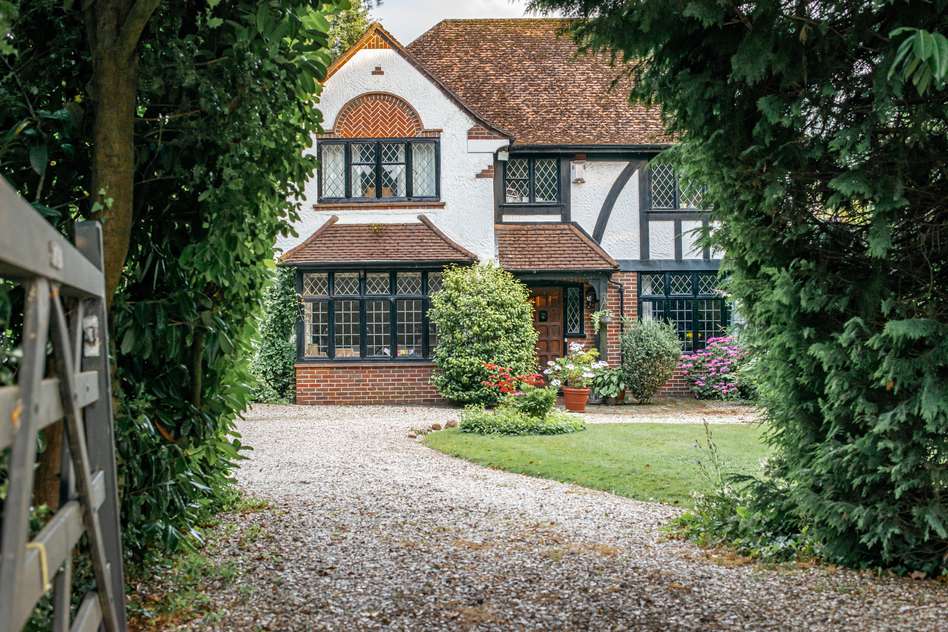What happens on completion day?

The day of completion is the final step in the house buying and selling process. It is the pre-arranged date when the financial and legal formalities are concluded, and the ownership of the property is transferred from the seller to the buyer.
On the day of completion, the following steps typically take place:
- The buyers’ solicitor will transfer the funds to the sellers’ solicitor.
- Once the funds have been received, the seller’s solicitor will contact the buyer’s solicitor to confirm that the funds have been received and will confirm to the estate agents that the keys can be handed to the buyers.
- The seller's solicitor will then send the deeds of the property to the buyer's solicitor.
- The buyer's solicitor will check the deeds to ensure they are in order and that the property has been legally transferred to the buyer. They will then apply for the title to be amended at the land registry.
The buyer is responsible for arranging the connection of utilities, registering with the local council and other services required at the new property. All of this should be completed from the date of completion. The buyer will normally be responsible for the building’s insurance from the date of exchange rather than completion. Your solicitor will make you aware of this at the appropriate time in the process.
The completion date is the date the buyer takes possession of the property and will have been agreed on by both parties in the sale contract. However, on occasion, the completion process may be subject to delays or complications, and it's always advisable to work with a reputable solicitor and estate agent to ensure a smooth and efficient process.
Answers to common questions about the day of completion day:
What do conveyancing solicitors check on completion day?
What can go wrong on completion day?
What time do you normally get the keys on completion day?
Should I call my solicitor on completion day?
What do conveyancing solicitors check on completion day?
Your conveyancing solicitor will handle the legality of transferring the funds, confirming the transaction has been completed, dealing with all the paperwork and deeds, and (if you’re the seller) redeeming or discharging any mortgage secured against the property.
- Prior to completion, the buyer’s conveyancing solicitor will check all mortgage conditions have been met and request the money from the lender.
- The seller’s solicitors will request a redemption statement (calculated to the day of completion) if there’s a mortgage on the seller’s property.
- For the buyer to become the new registered owner of the property, the transfer deed must be signed by the seller (and also sometimes the buyer). This is usually prepared in advance prior to the completion day.
- Conveyancing solicitors on each side create completion statements of all payments made and received and set out any invoices to be paid on completion.
- On completion day both solicitors make final checks, and then the buyer’s solicitor will transfer the purchase money via the CHAPS banking system to the seller. For more information on CHAPS, visit the Bank of England website.
- Once the signed transfer deed and any other deeds are received, the buyer’s solicitor will complete and submit a transfer form to the Land Registry. This enables the transfer of ownership from the seller to the buyer.
- Once the seller’s solicitor has received the funds, they’ll confirm completion with the buyer and release the keys from the estate agent. They also ensure specific charges are paid, including the seller’s estate agent fees.
- The buyer will be notified of the completion they can then move into the property.
What can go wrong on completion day?
On completion day, there are several potential issues that may arise, which could delay or disrupt the process of transferring ownership of a property. One potential issue is a delay in the transfer of funds from the lender to the solicitor and between solicitors in the chain of the sale. These delays may occur due to fraud checks, technical difficulties or a lack of sufficient funds. It's essential to ensure that all outstanding bills and fees, including stamp duty land tax, if applicable, are settled before completion day to avoid any issues.
There may also be delays with the seller vacating the property on time. It's important to confirm with your removal company the time of their arrival and be prepared for how long it will take to move your belongings. To minimize disruptions, it's recommended to do as much packing as possible before completion day.
What time do you normally get the keys on completion day?
The time that keys are handed over on completion day can vary depending on the specific circumstances of the sale. Typically, keys are handed over to the buyer once the funds have been transferred and the legal paperwork has been completed. The exact time of key handover will be agreed upon by the buyer and the seller, and it's usually coordinated through their solicitors or estate agents.
Usually, the keys are handed over in the afternoon, between 12:00 pm and 4:00 pm, but it can vary. The buyer and the seller can agree on a specific time and date to hand over the keys, based on their availability and the time they need to move out of and into the property.
If the completion process is subject to any delays or complications the keys may be handed over later than expected. Therefore, it's always advisable to have a plan B. Open communication with the seller and your solicitor can help avoid these delays.
Should I call my solicitor on completion day?
Your solicitor will call you when completion has happened. However, it’s a good idea to contact your solicitor on completion day to confirm that the process is proceeding as planned and that all necessary paperwork has been completed. They can also advise you on any final steps that may need to be taken and answer any questions you may have about the property transfer.
In summary, on completion day, you need to make sure the funds are transferred, legal paperwork is completed, arrange for utilities to be connected, register with the local council and other service providers, collect keys, and move into your new property.
Tees are here to help
We have many specialist lawyers who are based in:
Cambridgeshire: Cambridge
Essex: Brentwood, Chelmsford, and Saffron Walden
Hertfordshire: Bishop's Stortford and Royston
But we can help you wherever you are in England and Wales.
Chat to the Author, Imogen Collier
Senior Associate, Residential Property, Chelmsford office
Meet Imogen
- Areas of expertise
